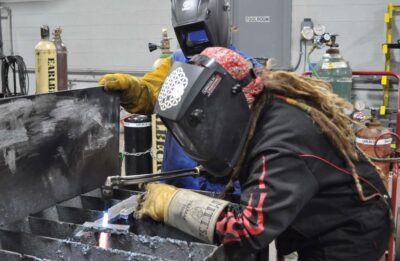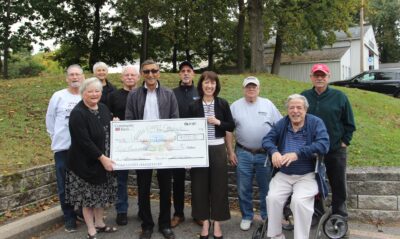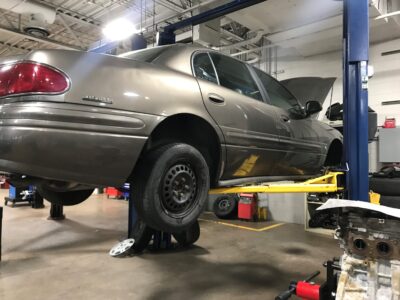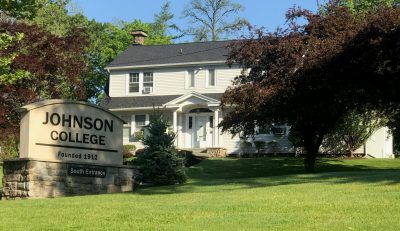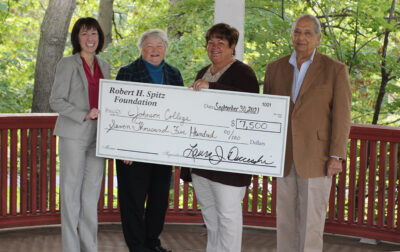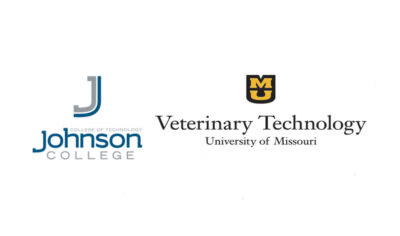The Johnson College Diversity & Inclusion Committee sponsored a food and supply drive for the NEPA Youth Shelter in honor of National Coming Out Day. A local organization that provides emergency shelter and related services to unaccompanied youth, the NEPA Youth Shelter is especially affirming to lesbian, gay, bisexual, transgender, and queer (LGBTQ+) youth, as this population constitutes a high percentage of unhoused youth in our area. Food, drinks, and cleaning supplies were collected on the Johnson College campus from September 27 to October 8. Many thanks to those faculty, staff, and students who donated!
Photo Caption: The Johnson College Diversity & Inclusion Committee members present NEPA Youth Shelter Executive Director Maureen Maher-Gray with the collected food and supplies. Left to Right: Ashley Cease Hassenbein, Academic Resource Officer, Johnson College, Luke Boniello, Academic Advisor, Johnson College, Melissa Saxon-Price, Counselor/Manager of Disability Services, Johnson College, and Maureen Maher-Gray, Executive Director, NEPA Youth Shelter.


